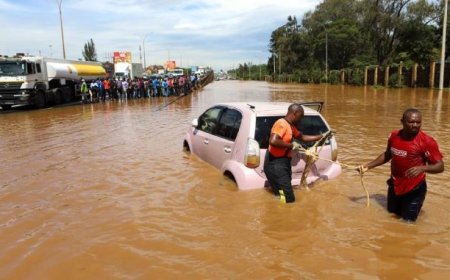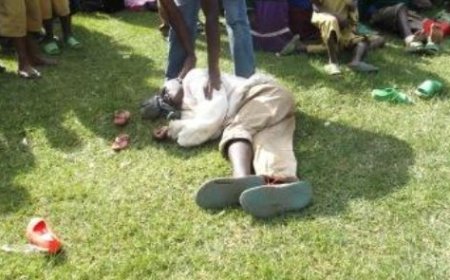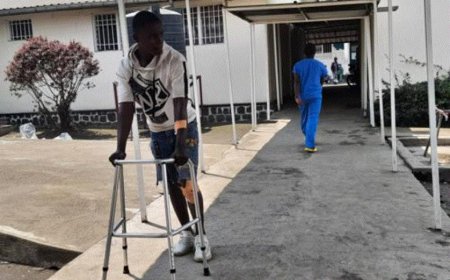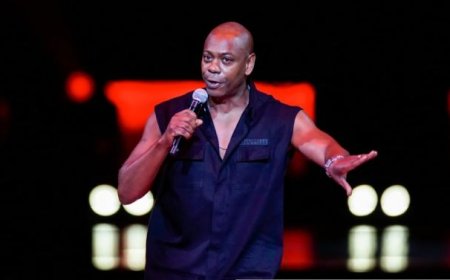ICJ calls on Israel to prevent acts of 'genocide' in Gaza, but does not order a ceasefire
Israel must prevent any possible act of genocide and allow access to humanitarian aid to Gaza: this is what the International Court of Justice ruled this Friday, January 26, in a highly anticipated verdict, which however did not mention a ceasefire in the Palestinian enclave.
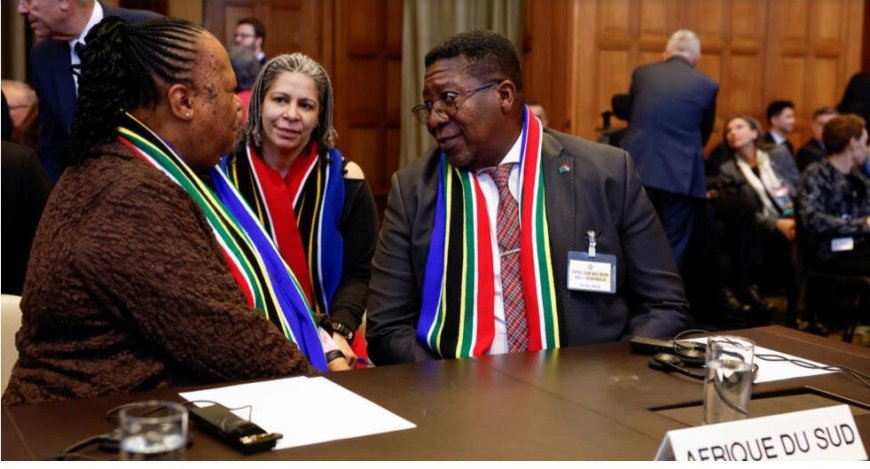
The International Court of Justice (ICJ) has ruled: that Israel must do everything possible to “prevent” any act of “genocide” in the Gaza Strip, and no leader must make statements inciting genocide, the court has since declared. the courtroom of the Peace Palace in The Hague. In addition, “the State of Israel must immediately take effective measures to enable the provision of basic services and humanitarian aid,” she added in her verdict, followed around the world. The Court ruled that the “catastrophic humanitarian situation” in Gaza “seriously risked deteriorating further” and causing irreparable damage in the enclave.
Concretely, the judges demanded that Israel not commit murders, not hinder births in Gaza, not make the survival of Palestinians impossible, and not cause attacks on their mental and physical integrity. Because all of these acts could constitute genocide if committed to destroy the Palestinians in Gaza.
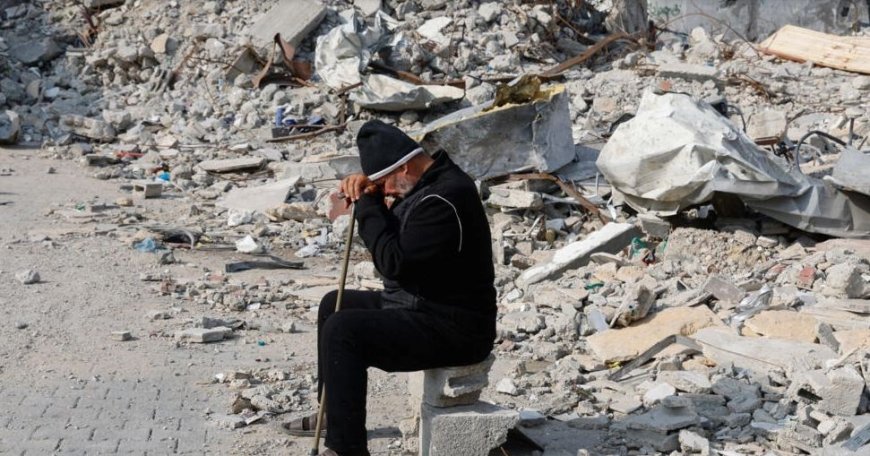
To make its decision, the ICJ considered that it did not have confirmation of the number of victims in Gaza, but it based itself on official reports from the United Nations, according to which almost the entire population of Gaza will suffer physical after-effects. or psychological aspects of current military operations, reports our correspondent in Brussels, Pierre Benazet. 93% of Gazans suffer from hunger to varying degrees and 1.7 million people have been displaced by the conflict.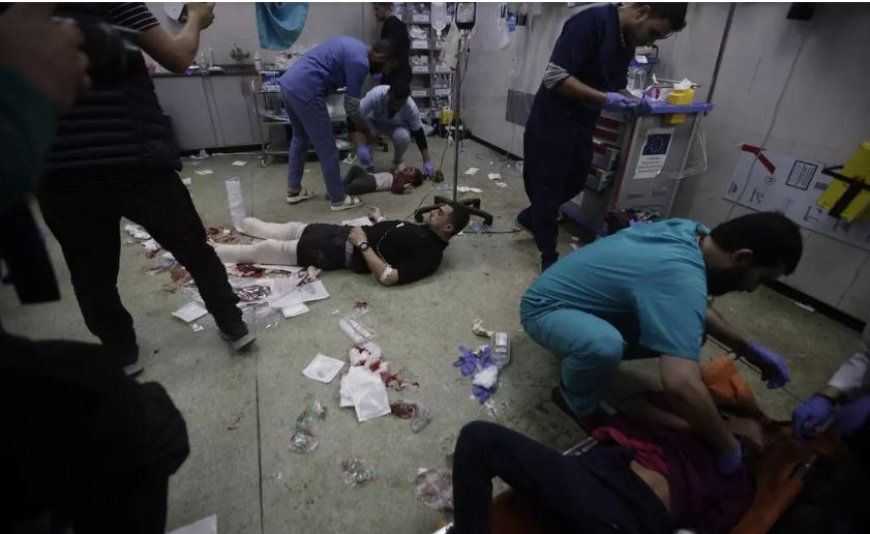
No demand for a ceasefire
On the other hand, three of the requested measures were not granted. For example, the Court did not order the suspension of Israeli military operations, as requested by South Africa, at the origin of the procedure launched last December. The country had taken the matter to court, believing that Israel was violating the 1948 United Nations Genocide Convention.
At this stage of the proceedings, the ICJ has also not ruled clearly on the question of Israel's alleged genocide in Gaza. But she nevertheless considers it “plausible” that such acts could be committed, indicates our correspondent in The Hague, Stéphanie Maupas.
Speaking to reporters on the steps of the Peace Palace, South African Foreign Minister Naledi Pandor said that, for her, the measures amounted to a call for a ceasefire. “How to provide humanitarian aid without a ceasefire? How to provide water and access to energy? How to ensure that the injured receive health care, etc. ? “, she asked herself. “Without a ceasefire, none of this can be done,” she said.
However, no recommendation was made by the ICJ towards Hamas. The highest court of the UN cannot legally order measures to the Palestinian Islamist movement, since it only deals with States. But the judges nevertheless called for the immediate and unconditional release of the hostages.
Palestinian “small steps towards liberation”
For many Palestinians in Ramallah, the order issued by the ICJ is disappointing, indicates our correspondent on site, Alice Froussard. In the town hall of the West Bank city, there were around a hundred Palestinians who came to witness the ICJ verdict live.
“This is a major problem. We are an oppressed people, and as militarily weak people, we find that the law is always, unfortunately, on the side of the powerful. I hope that in the future international law will play a more decisive role. For the good of all other nations, and for ours, and to ensure true peace... It is this peace that we aspire to,” says Iyad Staiti, a musician who came with his son, who hoped that the ICJ would order a ceasefire, at a minimum.
As soon as the Court's decision was announced in the room, there was no applause, closed faces. But some, like Issa Kassis, the mayor of Ramallah, want to remain optimistic. “We must not lose hope, because in Gaza they have lost hope. In the West Bank, it is happening too, and I don't want our people to get discouraged so we must always hope that tomorrow will be better. So yes, it’s not up to our expectations, but it’s not bad at all. I think these are very small steps towards liberation. »
local political sources, as our correspondent in Jerusalem, Michel Paul, points out. The ICJ is not asking the country to stop its offensive in Gaza: this is what young Israelis in Jerusalem are saying, like Dror, a reservist returning from the Palestinian enclave, who questions the judges' motives. “I believe this is tinged with anti-Semitism. But perhaps we should put this aspect aside. Israel does not have the means to stop this on its own for political reasons. So I think it’s good that there is an intervention,” he said.
Yossef, another young person, even invokes a form of “wokism”. “We will always be the bad guys in this story. We are the oppressors and they are the oppressed. Whatever happens, we will be the guilty ones. It’s a theory that has been developing for years in American universities. And we can do nothing to deny it,” he laments. On the terrace of a café, Naama forces herself to respond. “The intervention of the CIJ is a good thing. There must be consequences for everyone. I don't have a clear opinion. But it seems good to me” What concerns the Israelis is rather the fate of the hostages after 113 days of captivity.
 Kinyarwanda
Kinyarwanda
 English
English









